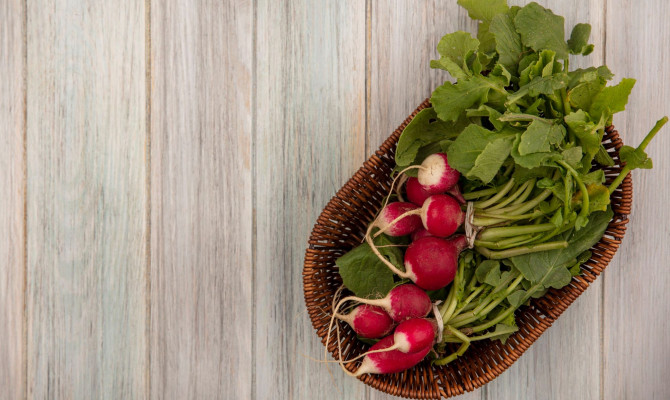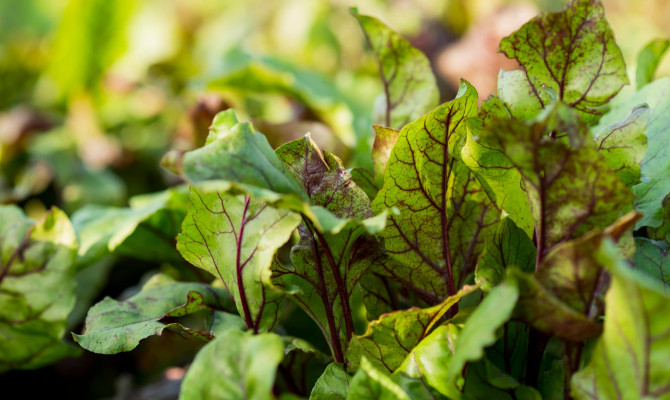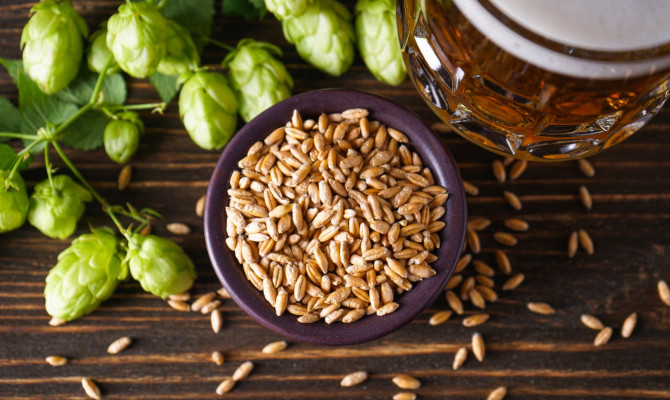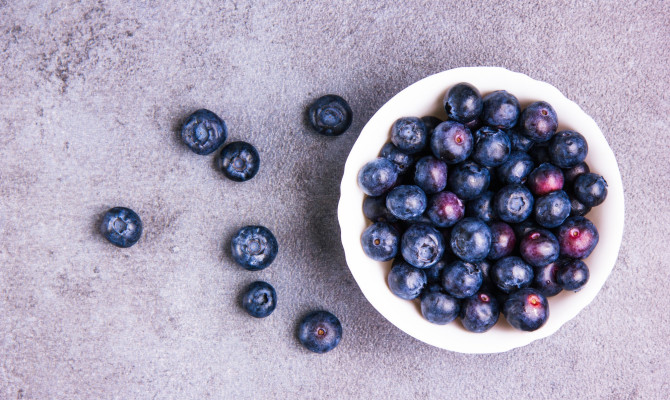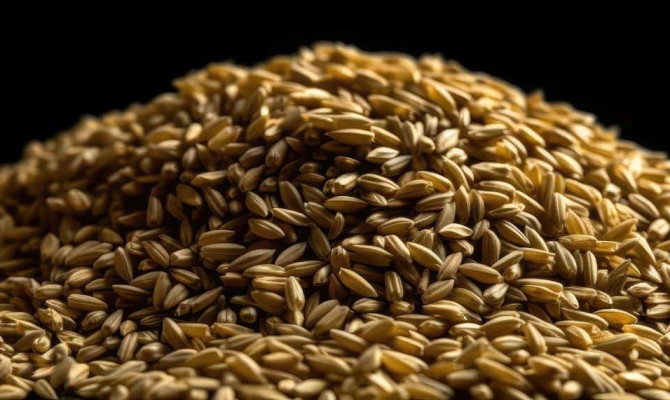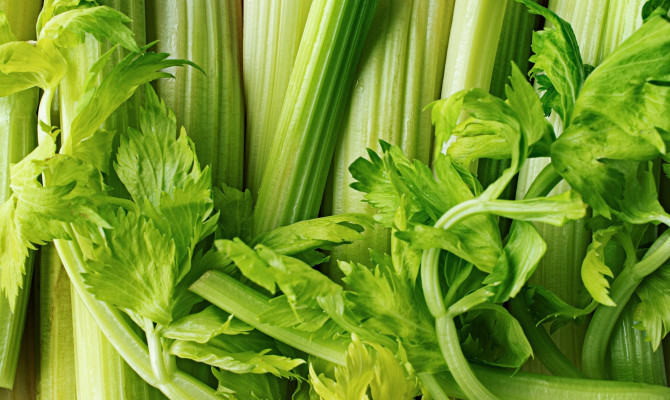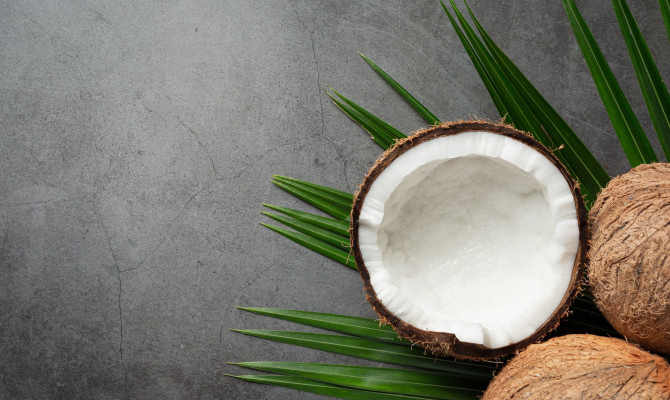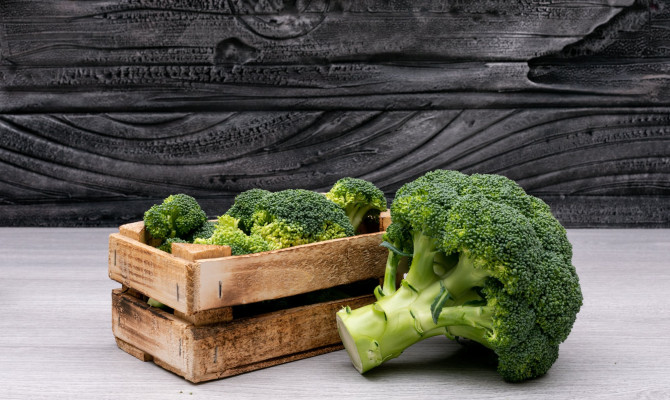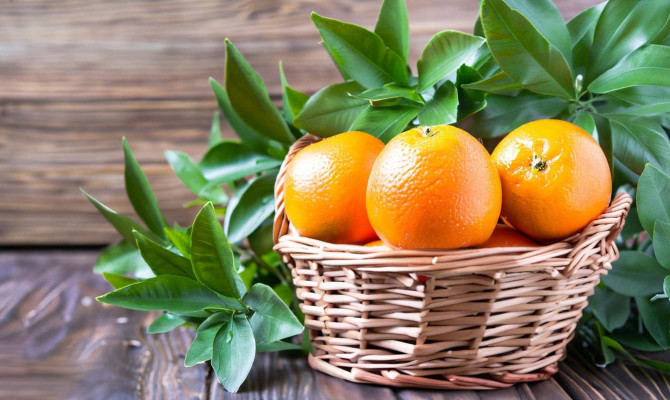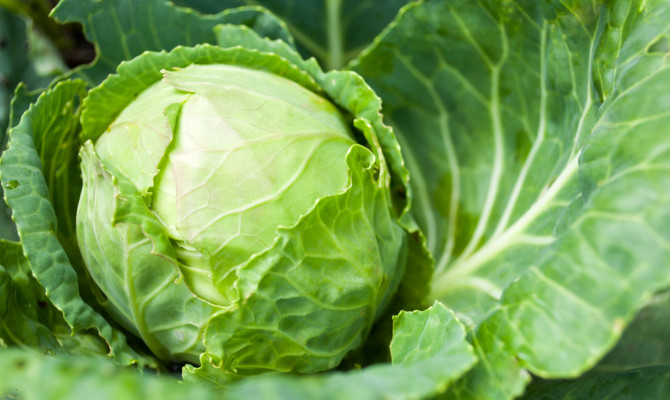Grapes: Nutrition, Benefits, Side effects and Precautions

- Grape
- 22 Aug 2023
Overview
Overview of Grapes
Grapes are small delicious, juicy, sweet fruits that grow in clusters in climbing plants (vines) belonging to the Vitaceae family. Botanically, grapes are berries of different colors, such as green, yellow, red, purple, white, black, and pink. Grape vines are versatile; people make medicines from fruit, skin, seeds, and leaves. Products such as grape jams, jelly, raisins (dried fruit), juice, and wine are prepared from grapes.
Worldwide, around ten thousand varieties of grapes are available in seeded or seedless form. However, the two most common species of grape vines are Vitis vinifera and Vitis labrusca.

Here are some quick facts about grapes
- Grapes are indigenous to Central Asia and the Mediterranean region, but now it is grown worldwide.
- The resveratrol component in grapes has many health benefits
- Grape’s skin naturally contains yeast, leading to the discovery of alcoholic wine drinks.
- The most widely cultivated grape species for commercial purposes is Vitis vinifera, which comprises around 90% of the grapes in the market 1Overview| Researched based study from Sciencedirect.com
Nutrition
Nutrition profile of Grapes
150 grams of raw grapes (green or red) consists of the following nutrients:
- Calories-104
- Fiber- 1.4 gm (gram)
- Fat-0.2 gm
- Protein- 1 gm
- Carbohydrate-27 gm
- Vitamin K-18% of DV (percentage of daily value)
- Vitamin B1 (Thiamine)-9% of DV
- Vitamin B2 (Riboflavin)-8% of DV
- Vitamin B6-8% of DV
- Vitamin C-5% of DV
- Vitamin E-2% of DV
- Copper-21% of DV
- Potassium-6% of DV
- Manganese-5% of DV
The daily value (DV) is the reference quantity to eat every day
The % daily value (%DV) is the daily value percentage for every nutrient in a food portion.
Fiber, vitamins, and minerals performs the following functions in our body:
- Fiber- It improves gut health and prevents constipation
- Vitamin K- It is necessary for the healing (blood clotting) process in our body, and it promotes the bone health
- Vitamin B1 (Thiamine)-It plays a vital role in proper cell functioning
- Vitamin B2 (Riboflavin)-It plays a crucial role in regulating the body’s energy supply and helps various enzymes perform everyday activities.
- Vitamin B6(Pyridoxine)- It is vital for correct brain functioning, and it supports the immune system and nervous systems
- Vitamin C- is crucial for tissue growth, restoration, and healthy skin and bones.
- Vitamin E-It helps to keep the immune system healthy and helps maintain the eyes and the skin.
- Copper- It maintains the nerve and immune system of the body
- Potassium- It is vital for regulating the blood pressure in our body
- Manganese- It helps bodily processes to function correctly and supports in building up of the bones 2Nutrition| Researched based study from Usda.gov
Properties
Properties of Grapes
Grapes have the following properties:
- Heart (Cardio)-protective properties
- Antioxidant properties
- Anti-diabetic properties
- Anti-cancer properties
- Anti-inflammatory properties
- Antimicrobial properties 3Properties| Researched based study from Nlm.nih.gov
Health benefits
Health benefits of Grapes
Grapes have the following health benefits:
- Reduces blood pressure
- Promotes heart health
- Promotes eye health
- Boosts memory
- Reduces the risk of diabetes
- Reduces the risk of cancer
- Reduces inflammation
- Strengthen the bone health
- Enhances skin and hair health
- Enhances the digestive health
- Supports sleep
Reduces blood pressure
- Nutrients in grapes help dilate the veins and arteries
- It helps excrete sodium and prevents the increase in blood pressure 4Health benefits| Researched based study from Nlm.nih.gov
Promotes heart health
- Nutrients in grapes decrease the cholesterol levels in the body
- It reduces the risk of heart diseases 5Health benefits| Researched based study from Nlm.nih.gov
Promotes eye health
- Nutrients in grapes improve the vision
- It decreases the possibility of age-related macular degeneration 6Health benefits| Researched based study from Nlm.nih.gov
Boosts memory
- It enhances the thinking ability and concentration
- It reduces the risk of Alzheimer’s disease 7Health benefits| Researched based study from Nlm.nih.gov
Reduces the risk of diabetes
- Nutrients in grapes protect the pancreatic cells that produce insulin
- It increases the insulin sensitivity 8Health benefits| Researched based study from Nlm.nih.gov
Reduces the risk of cancer
- In animal studies, nutrients in grapes prevent the growth of abnormal cells.
- It decreases the risk of breast and colon cancer 9Health benefits| Researched based study from Nlm.nih.gov
Reduces inflammation
- Nutrients in grapes lessen the pain and swelling
- It lowers levels of inflammatory markers such as interleukin-6 10Health benefits| Researched based study from Nlm.nih.gov
Strengthen the bone health
- In animal studies, nutrients in grapes improve the bone mineral density
- It reduces the risk of bone fractures 11Health benefits| Researched based study from Nlm.nih.gov
Enhances skin and hair health
- Nutrients in grapes protect the skin from the sun’s harmful ultraviolet rays.
- It protects the hair follicles from destruction and promotes hair growth 12Health benefits| Researched based study from Nlm.nih.gov
However, more research is warranted.
Enhances the digestive health
- Nutrients in grapes regularize the bowel movement
- It relieves the feeling of partial evacuation 13Health benefits| Researched based study from Nlm.nih.gov
Supports sleep
- Nutrients in grapes help get a good sleep
- It prevents insomnia 14Health benefits| Researched based study from Nlm.nih.gov
Portion sizes of grapes
- Although grapes have many nutritional properties, one should never forget that it also contains high sugar, so people with diabetes (high sugar) must consume them in moderate amount.
- Moreover, grape juice contains more sugar than the whole fruit. So it is always best for diabetic people to consume the raw rather than the juice form.
Side effects
Side effects of Grapes
Most people can tolerate grapes well when taken in food amounts. However, some people might experience the following side effects:
- Headache
- Dry mouth
- Cough
- Itching
- Hives
- Skin rash
- Swelling of the face, mouth, throat and tongue
- Difficult breathing
- Diarrhea (when eaten in large amounts) 15Side effects| Researched based study from Nlm.nih.gov
Precautions
Precautions
Avoid Pesticide contamination
- According to the Environmental working group, grapes are one of the fruits with the maximal pesticide residues. Pesticides are toxic compounds and can have potential acute or persistent health hazards. So people should purchase organic grapes to reduce the pesticide residue risk.
Avoid choking in kids below four years
- Giving whole grapes to kids might cause choking hazards. So elders must cut the grapes into small parts before offering them to kids younger than four years to avoid the risk 16Precautions| Researched based study from Sciencedirect.com .
If suffering from health issues
Cautions should be take, because grapes might not be suitable for some people with the following health conditions:
- Allergic to grapes or any of the products
- Heart problem
- Kidney problem
- Bleeding disorders
- People on anticoagulant medications
- People planning for surgery two weeks later
- People within two weeks of surgical operation 1Precautions| Researched based study from Sciencedirect.com
Pregnancy and breastfeeding mothers
- There needs to be more information to know if grapes are safe in medicinal amounts for pregnant women and nursing mothers. So it is best to stick to food amounts in these groups.
Interactions
Interactions of Grapes
Anticoagulant
- Anticoagulants are medications to delay the blood clotting process.
- Grapes might also slow the clotting process. Taking grape extract and anticoagulant together might increase the risk of profuse bleeding.
Phenacetin
- Phenacetin is a drug to relieve pain and bring down body temperature.
- Grape juice and phenacetin increase the body’s ability to break down phenacetin. It might reduce the efficiency of the drug.
Cyclosporine
- Cyclosporine is an immunosuppressant drug.
- Drinking purple grape juice and cyclosporine together might reduce the body’s ability to absorb cyclosporine. It might reduce the effect of the drug.
- Take the cyclosporine dose only after two-three hours of grape juice intake to avoid possible interaction.
Medications changed by the liver
- Taking grapes and medication changed by the liver viz; Cytochrome P4501A2 might alter the liver’s ability to break down the drug. It might decrease the drug’s efficiency and increase its side effect.
Midazolam
- Midazolam is a sedative drug.
- Taking grape seed extract for around seven days might increase the body’s ability to eliminate midazolam. It might decrease the drug’s efficiency. However, a single dose of grape seed extract does not affect the medicine 17Interactions| Researched based study from Sciencedirect.com
Tips
Tips to include Grapes in the diet
- Eat one cup of grapes for an immediate 100-calorie snack
- Cut grapes into small pieces and add them to the chicken salad and favorite fruit salad
- Add grapes to any smoothies and enjoy.
- Enjoy fruit cocktails with fresh grapes, strawberries, peaches, and pineapples.
- Freeze grapes and enjoy it during hot summer days as snacks
- Put grapes as toppings to yogurt along with nuts and honey and relish the taste
Selection
Selection & Buying of Grapes
Selection
- Different grape varieties are available throughout the summer and autumn. But one can purchase imported grapes from fruit markets throughout the year.
Buying
- While buying, choose tight and bright-colored grapes without any mold or blemishes. Ripe green grapes that turn yellow are the sweetest with the finest flavor.
- Buy black and red grapes when they are brightly colored.
Storage
Storage of Grapes
When kept correctly, one can store grapes in the refrigerator for a few weeks.
Some tips to follow to maintain optimum freshness are as follows:
- Discard grapes that show signs of deterioration, such as molds and wrinkles
- Keep grapes in the back part of the refrigerator, away from other foods such as onions and garlic
- Keep grapes in the original package to get an extended shelf life
- Store grapes unwashed in the fridge as any left moisture speeds up the decaying process. Wash grapes only before consumption.
- One can freeze grapes for later use in cocktails and smoothies
Takeaway
Key Takeaways
- Grapes are nutritious, tasty fruit with many potential health benefits
- It contain sugar but rarely impact health when consumed in the correct amount
- Grapes are a great snack at any time of the day.
- Grapes are very simple to add to your daily diet. It can be an excellent addition to a well-balanced diet.
- Always consume fresh whole fruits over other grape products such as juice for the most health benefits.
Any feedback on this article?
 This Articles content was accurate
This Articles content was accurate Very Informative Article
Very Informative Article I have a question or a comment
I have a question or a comment
 This article contains inaccurate content
This article contains inaccurate content This article was not helpful
This article was not helpful I have a question or a comment
I have a question or a comment
We appreciate your helpful feedback!
Checkout our social pages
References
-
Science Direct
Grapes | Overview
-
U.S. DEPARTMENT OF AGRICULTURE
Grapes, red or green ,Raw | Nutrition
-
National Library of Medicine
Biological and medicinal properties of grapes and their bioactive constituents: an update | Properties
-
National Library of Medicine
Potassium Intake, Bioavailability, Hypertension, and Glucose Control | Benefits
-
National Library of Medicine
Comparative effects of red and white grapes on oxidative markers and lipidemic parameters in adult hypercholesterolemic humans | Benefits
-
National Library of Medicine
Protective Effects of Resveratrol against UVA-Induced Damage in ARPE19 Cells | Benefits
-
National Library of Medicine
Resveratrol, Metabolic Dysregulation, and Alzheimer’s Disease: Considerations for Neurogenerative Disease | Benefits
-
National Library of Medicine
Modulation of SIRT1-Foxo1 signaling axis by resveratrol: implications in skeletal muscle aging and insulin resistance | Benefits
-
National Library of Medicine
Autumn Royal and Ribier Grape Juice Extracts Reduced Viability and Metastatic Potential of Colon Cancer Cells | Benefits
-
National Library of Medicine
Anthocyanidins and anthocyanins: colored pigments as food, pharmaceutical ingredients, and the potential health benefits | Benefits
-
National Library of Medicine
Regular Supplementation With Resveratrol Improves Bone Mineral Density in Postmenopausal Women: A Randomized, Placebo-Controlled Trial | Benefits
-
National Library of Medicine
Resveratrol as an active ingredient for cosmetic and dermatological applications: a review | Benefits
-
National Library of Medicine
Whole Fruits and Fruit Fiber Emerging Health Effects'. Nutrients | Benefits
-
National Library of Medicine
Effects of Diet on Sleep: A Narrative Review | Benefits
-
National Library of Medicine
Adverse Effects of Grape Seed Extract Supplement: A Clinical Case and Long-Term Follow-Up | Side effects
-
Science Direct
Pesticide residues in grapes and during vinification process | Risk
-
Science Direct
Influence of Purple Grape Juice in Cyclosporine Bioavailability | Interactions












